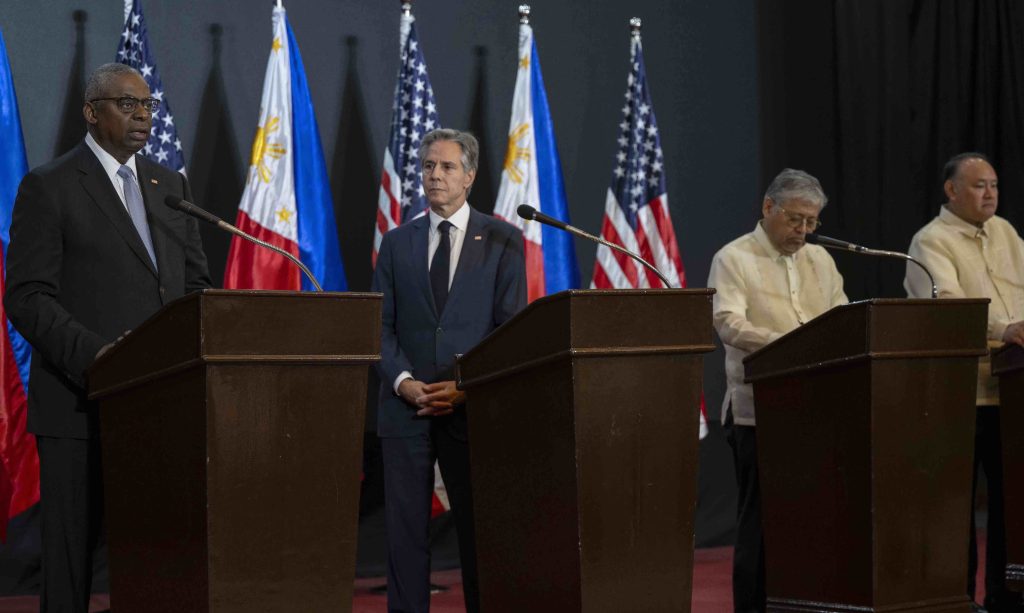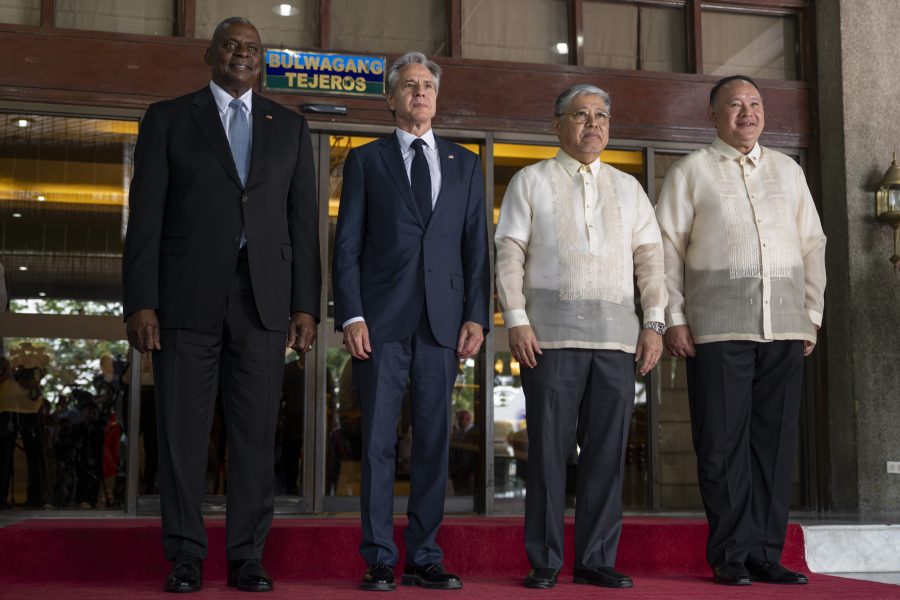The U.S. and the Philippines reaffirmed their right to navigate the South China Sea and its international airspace in the wake of China’s attempts to disrupt these activities, top officials from the two nations said during a meeting in Manila on July 30.
“We are about making sure that all of us can protect and uphold our sovereignty, our territorial integrity, freedom of navigation, freedom of commerce, which is so vital to everyone in this region,” Secretary of State Antony Blinken said during a joint press conference.
Blinken and Secretary of Defense Lloyd J. Austin III visited Manila to meet with their Philippine counterparts for the two nations’ Ministerial Consultations. The secretaries reiterated their commitment to lawful commerce and demanded “full respect for international law” from Beijing in the highly contested Second Thomas Shoal in a joint statement.

The remarks come on the heels of China and Russia flying their bombers and fighters near U.S. territory last week. Marking the first instance of simultaneous encroachment near Alaska by the two nations, two Russian TU-95 Bear and two Chinese H-6 strategic bombers entered the Alaska Air Defense Identification Zone (ADIZ) on July 24. The aircraft were intercepted off the coast of Alaska by American and Canadian fighters and remained in international airspace.
While this was a debut for Chinese H-6s venturing close to North America, Beijing has previously conducted what the U.S. calls unprofessional intercepts in the South China Sea, most of which China asserts claims over. The U.S. regularly patrols the skies with its surveillance aircraft, as well as bombers, and conducts aerial and maritime exercises with its allies in the region, arguing it is operating in accordance with international law.
Meanwhile, the tensions between China and the Philippines revolve around maritime disputes. Following surging tensions from Beijing since last year, the U.S. and the Philippines have boosted their joint training in the region. The latest flare-up saw the Chinese coast guard attacking Filipino fishing vessels with water cannons near Second Thomas Shoal.
The shoal is situated about 105 nautical miles west of the Philippine Island of Palawan. Several other countries, including Vietnam, Malaysia, and Brunei, have claimed the territory. The region falls within Manila’s internationally recognized Exclusive Economic Zone (EEZ).
“Let me be clear, the Mutual Defense Treaty applies to armed attacks on either of our armed forces, aircraft, or public vessels anywhere in the South China Sea,” Austin said on July 30, referring to the 1951 agreement committing both Washington and Manila to mutual defense in the Pacific.
During their visit, Austin and Blinken additionally announced extra funding to amplify the nation’s security partnership with the U.S.
“We’re working with the U.S. Congress to allocate $500 million in Foreign Military Financing to the Philippines,” said Austin.
This includes $128 million for Enhanced Defense Cooperation Agreement (EDCA) investments. The Philippines has been ramping up security by expanding U.S. military presence to more local bases through the EDCA over the past few years.
The Pentagon currently has access to nine Philippine military sites where it can preposition aircraft and vessels. Washington aims to modernize these facilities through runway and infrastructure upgrades, to enhance joint training and interoperability.
The half-billion dollars will also help deter “unwanted and unlawful aggression by building a credible deterrent posture,” according to Philippine Defense Secretary Gilberto Teodoro.
